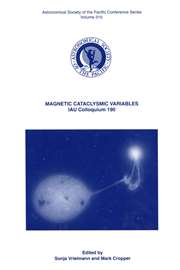No CrossRef data available.
Article contents
Astronomy as a Liberal Art
Published online by Cambridge University Press: 12 April 2016
Extract
Every year in the United States, many thousands of university and college students take a one-semester course in astronomy as part of a “Liberal Arts” curriculum. At many institutions these courses are the raison d’etre for the astronomy program, and at most other institutions they are viewed as an important term in calculating an astronomy department’s contribution.
I have often had a sense that what we are doing in these courses is counter-productive to any serious understanding of the goals of liberal arts curriculum. Over the last six or seven years, as I have been participating in my college’s efforts to introduce a year-long, interdisciplinary survey of the humanities into our curriculum, this hunch has been confirmed: in our efforts to fit astronomy into the liberal-arts curriculum, we have ironically been undermining the enterprise.
- Type
- 3. The Teaching Process
- Information
- International Astronomical Union Colloquium , Volume 105: The Teaching of Astronomy , 1990 , pp. 101 - 103
- Copyright
- Copyright © Cambridge University Press 1990
References
1 And I have taught such a course at least 33 times.
2 Funded by a grant from the Mellon Foundation.
3 In my institution students call these “baby” courses — “baby astro.” There are no “baby” courses in the humanities
4 To borrow a phrase from a literary friend, in a conversation about the origin of the cosmic microwave background.
5 In a review of How Superstition Won and Science Lost, by Burnham, John C., in Science 240, 1552, 1988. Harris continues: “Today’s popularizing processes, compared with some earlier versions, seem condescendingly simple-minded or narrowly opportunistic.”Google Scholar
6 New York Review of Books, 1988 June 10.




